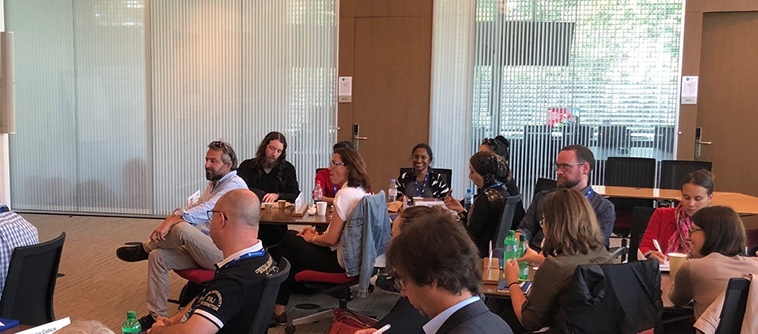
When leaders from NGOs and business meet, it may seem like they are speaking different languages. But with global social and environmental challenges requiring increased innovation across sectors, both are keen to find ways to collaborate for a better world.
The International Council of Voluntary Agencies (ICVA) and IMD business school are exploring how the for-profit and not-for-profit sectors can find common ground.
ICVA is a global network of non-governmental organisations whose mission is to make humanitarian action more principled and effective by working collectively and independently to influence policy and practice. It has over 100 NGO members operating in 160 countries and acts as a bridge between members to share information, collaborate and engage other stakeholders.
IMD President and Nestlé-chaired Professor Jean Francois Manzoni opened ICVA’s global meeting with a discussion on how a business school can help foster collaboration among leaders from NGOs and business.
“The globalizing economy has lifted hundreds of millions of people out of poverty,” Manzoni said. “But we have destroyed the planet in the process and the fruits of economic growth have not been evenly distributed.”
The most effective and efficient solutions can be found by partnering, Manzoni said. “When people meet, they find points of connections they didn’t anticipate. Discussions bring mutual understanding and trust.”
IMD is welcoming not-for-profit organizations to learn alongside business executives on its programs to help facilitate these partnerships.
“There’s a profound desire on the part of IMD to support organizations that are trying to change the world,” Manzoni said.
Prof Vanina Farber, who holds the IMD elea chair for Social Innovation, outlined developing opportunities for financing to reduce the gap between funding and humanitarian needs.
NGOs often mistrust the private sector, are reticent to build a business case for financing, and lack the knowledge of how to structure financial instruments, she explained.
On the other hand, businesses are underestimating the risk of inaction in the face of social and climate change disruption. They often don’t understand the challenges of the NGO sector, humanitarian crises, or local contexts.
To partner with the private sector, not-for-profit organizations need to communicate with business about the issues that are core to their business. These issues, called materiality, vary among industries.
Businesses are increasingly building a case for caring about the impact they have on the world and incorporating that into market strategy, operations, innovation, and product development. Through collaboration across sectors, multi-stakeholder solutions are taking hold, bringing a variety of skillsets to build strategic alliances.
With new platforms to explore ideas, NGOs and business can understand their different drivers and challenges to build a common framework for exponential impact.
Find out about how IMD supports non-governmental, Non-profit and Public Sector organizations through discounts on its programs.



